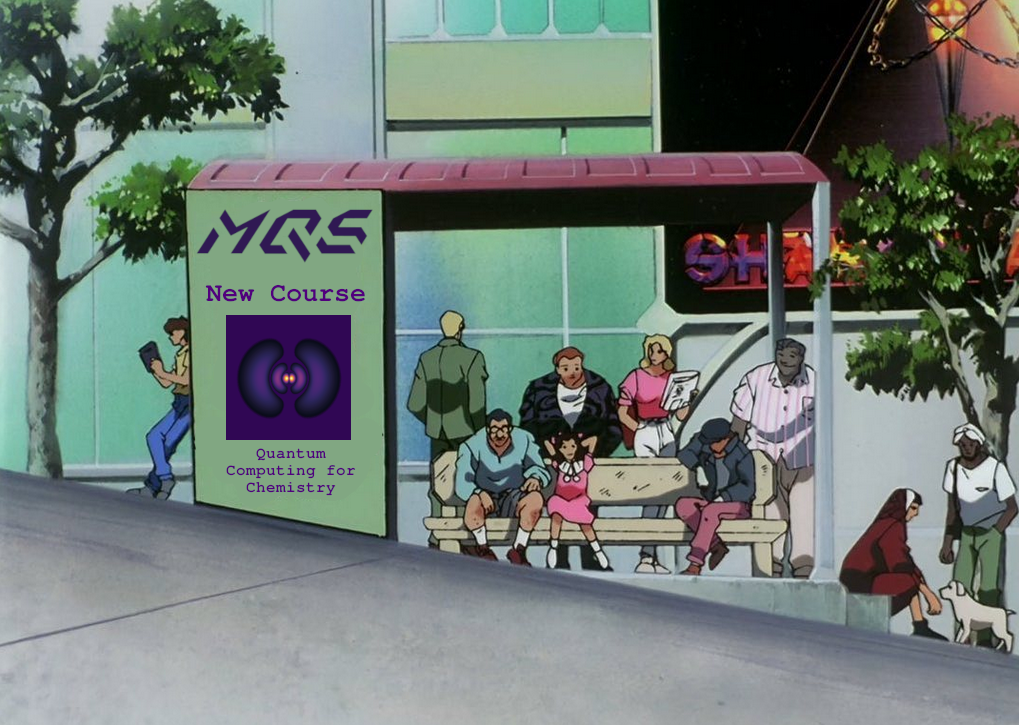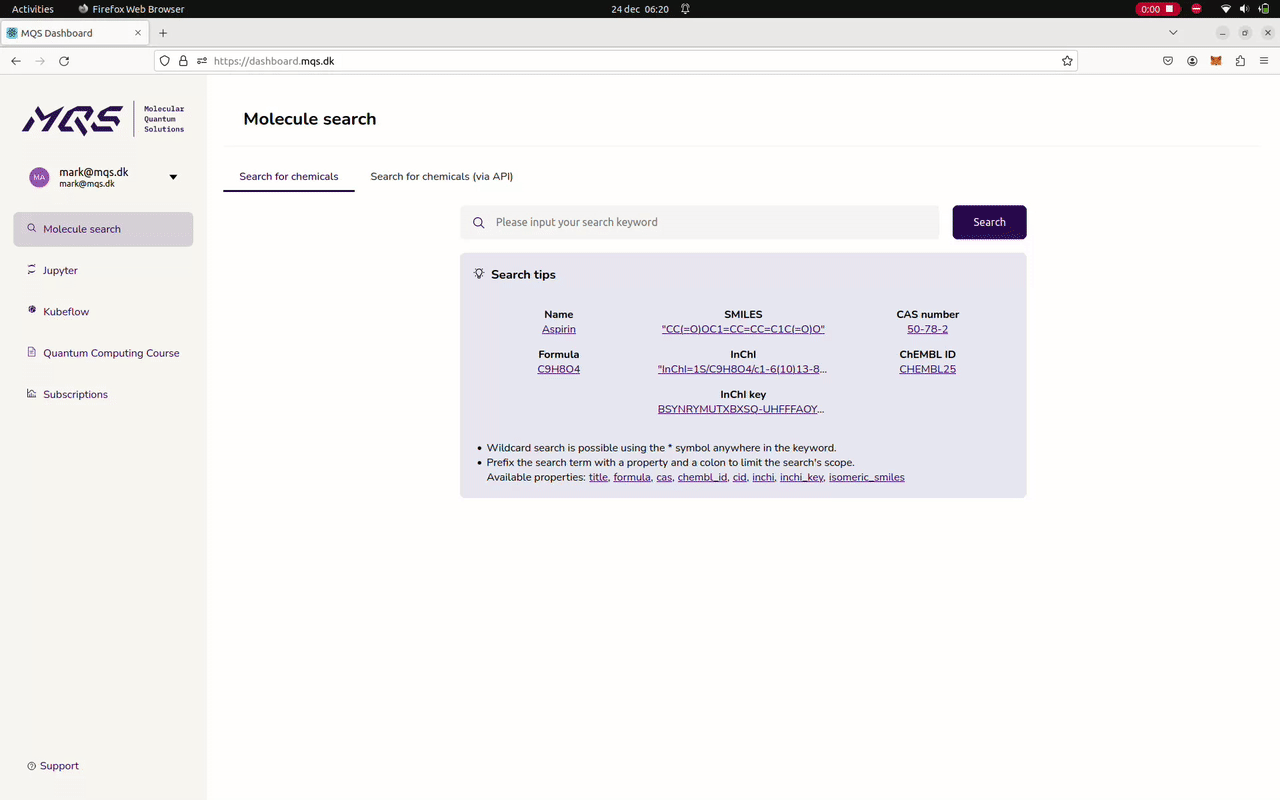Quantum Computing Course & HPC Development Environment

Quantum Computing for Chemistry Course
We have added our quantum computing course material to the MQS Dashboard (https://dashboard.mqs.dk), where you can learn about specific quantum topics. The course is structured as follows:
- Introduction
- Basics of quantum computing
- Quantum chemistry
- Variational quantum algorithms
- Quantum annealing
- Quantum machine learning
We have tested the course material in two 3-day online workshops, and with your feedback, we will continuously improve the material and guide you through the course with our integrated questions/feedback field. In this way, you will receive a personalized learning experience.
Code examples are provided in Python, and the quantum computing packages PennyLane and QuTiP (https://qutip.org/) are utilized. PySCF (https://pyscf.org/) and PSI4 (https://psicode.org/) code examples are provided for the quantum chemistry chapter, and D-Wave’s quantum annealing solver (https://docs.dwavesys.com/docs/latest/) is applied in the quantum annealing chapter.

JupyterLab environment with high performance capabilities
Further, you will have the opportunity to learn within a JupyterLab environment, where exercises from the course are provided. You will not need to set up your own work environment, and all your code developments can be stored and accessed from any computer you are using at work, at home or, while travelling.
We have also invested efforts into providing you a scalable JupyterLab instance, meaning that you can request more compute power for your calculations if you feel that the cluster does not have the capacity (virtual CPUs) to run your calculations. This also applies to projects unrelated to the course which you are working on and would like to make use of the MQS platform as your high-performance scientific development platform. We will help you to have all the tools or computational resources you need in place.
Full suite of MQS tools: MQS-API and MQSDK
The Quantum subscription also comes with the molecules database API access and the MQSDK, which we have already introduced in several blog posts:
This infrastructure platform provides a full fledged scientific development environment that holds all the tools to create advanced hybrid classical-quantum calculation pipelines in combination with machine learning and a molecules database with data of over 200.000.000 molecular structures.
Machine learning pipelines capabilities
If you know how to set up machine learning pipelines with Kubeflow, you can also make use of a Kubeflow instance, which we provide to every user of the Quantum subscription. More tutorials on how Kubeflow can be utilized are coming soon.